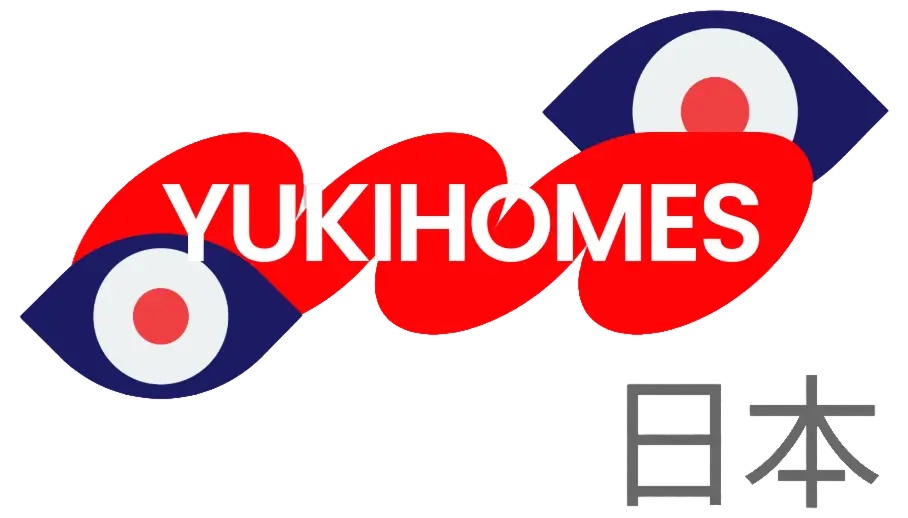1. Are there any strings attached to buying a home in Japan as a foreigner?
Nope. Foreigners have the exact same ownership rights as Japanese citizens. There are no extra fees, no visa requirements, no renovation mandates, and no minimum stay rules. You can buy a home outright with full ownership, even on a tourist visa.
2. How much are the taxes? They’ve gotta get you somewhere, right?
Japan’s property taxes are shockingly low. There are two main annual taxes:
- Fixed Asset Tax (Kotei Shisanzei) – kind of like your federal property tax.
- City Planning Tax (Toshi Keikakuzei) – this one goes to your local municipality.
Together, they usually total around 1.7% of the assessed value of the property. Cheap homes = Cheap taxes. For example, our own annual tax bill is around $600 USD/year. Yea you read that right $600 USD

3. What about earthquakes and natural disasters? Japan is known for those, right?
Fair question. Japan introduced stricter earthquake-resistant building codes in 1981, and tightened them again in 2000. So homes built after 2000 tend to be the safest structurally. But our home in pre 1981 and i personally do not worry. If it survived this long its good in my mind.
That said, no area is completely immune from disasters, just take the 2024 Noto earthquake as an example, which hit lower risk zone according to the map above.
Thankfully, insurance is excellent and affordable. There are two types:
- Fire Insurance (Kasai-Hoken)
- Earthquake Insurance (Jishin-Hoken)
Together, they typically cost ¥35,000/year (~$242 USD). In lower-risk zones, it can be as low as ¥17,000/year (~$117 USD). Peace of mind doesn’t break the bank here.
4. Can I Airbnb my home?
Yes, but there are caveats. In 2018, Japan introduced the Minpaku Law to regulate short-term rentals. Here’s what to know:
- You’re limited to 180 days of rentals per year unless you get a Ryokan license.
- Each city or town sets its own rules, and some ban short-term rentals entirely.
- You must register your property and meet certain safety and hygiene standards.
- If you don’t live nearby, you must hire a local property manager with boots on the ground.
If your property is properly zoned, you can apply for a Ryokan license, which allows 365 days of rental, but the safety and building requirements are stricter. (That’s what we did with our own home.)
5. Why do I need you guys? Can’t I just call a listing agent and buy a home myself?
You can try, but here’s the reality:
Most Japanese agents don’t speak English and many will refuse to work with foreigners, not because they’re rude, but because they fear legal issues, misunderstandings, and the unknown.
We’ve built a network of bilingual partner agents across Japan, so we can represent you professionally, avoid miscommunication, and help you navigate the process from start to finish.
6. How do I pay property taxes and set up utilities if I don’t live in Japan?
Great question. If you're on a tourist visa, you can’t open a Japanese bank account. So to pay taxes and utilities, you’ll need a tax representative in Japan. That can be a local friend, or you can appoint us.
We’ll:
- Handle tax payments on your behalf
- Set up utilities (water, gas, electric, internet)
- Forward the bills or just handle payments and bill you for reimbursement
It’s straightforward, and we do it for dozens of clients already.
7. Is the house actually mine?
Yes, 100%. The title is in your name, and you’ll be the legal owner. No one else has a claim on it. You’ll have full autonomy to renovate, rent it out, or just enjoy it as a vacation escape.
8. What’s the quality of these old homes?
It really varies. We vet all listings and avoid properties with major red flags like structural damage, unpermitted extensions, or legal encumbrances.
That said, there are some cultural differences:
- Most older Japanese homes lack insulation and double-paned windows, even in snowy regions like Hokkaido.
- Layouts are often more compact, and it’s common to see just one bathroom, sometimes with two separate toilets but very rarely two showers.
- Kitchens and bathrooms have very different setups compared to western homes (smaller sinks, deep bathtubs, etc.), but they’re often super efficient.
9. Does buying a home give me a path to citizenship or residency?
Unfortunately, no. Buying property in Japan does not grant you residency, a visa, or citizenship. You can own as a foreigner on a tourist visa, but if you plan to live in Japan long-term, you’ll need a separate visa through work, study, family, or other means.
- Why are homes so cheap ?
- That’s a long answer. Check out this past Newsletter
- for more information on that !
Check out our new search and Discovery tool
Take the Next Step
Join our community for exclusive insights and resources on Japanese real estate investments.

Our team
Meet the founders.

Derek has been working in the Airbnb space for the past 10+ years and recently purchased a home in Japan. He is excited to bring this investment opportunity to others in the States & abroad.

Nick has a passion for adventure and has always dreamed of owning a property in Japan. His dreams finally came true when Derek brought him in on a deal of a lifetime in Hokkaido, Japan - one of Nick's favorite places on Earth.


